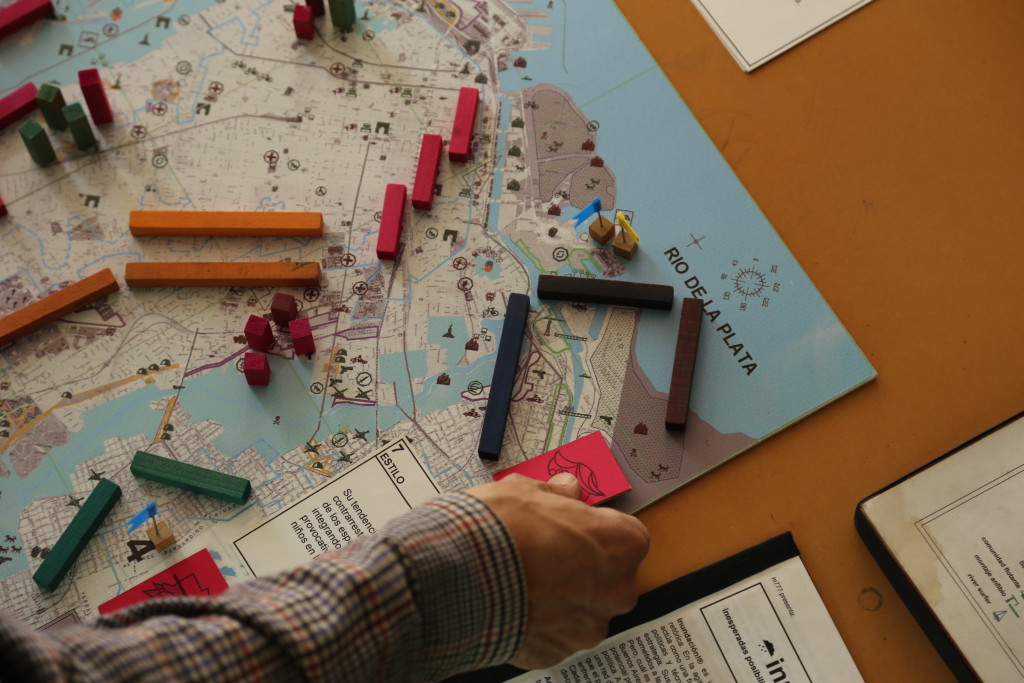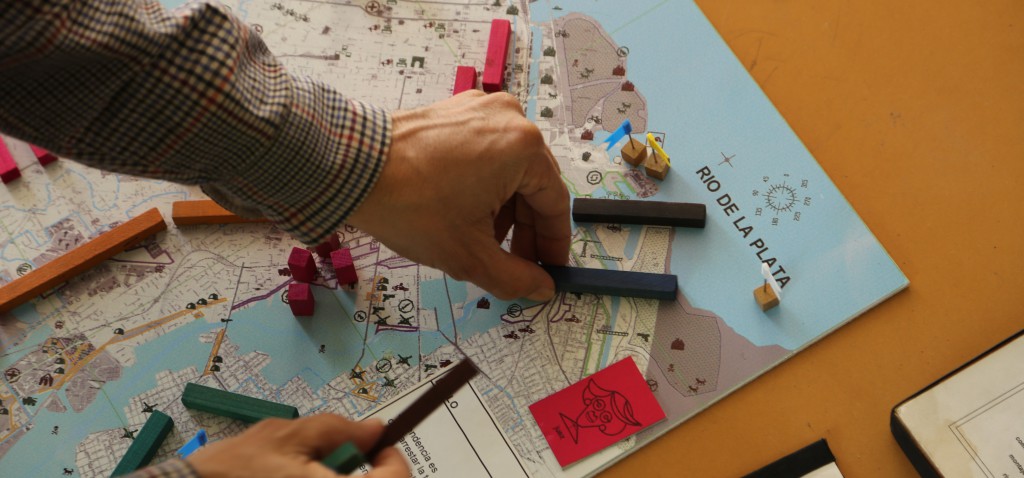Natural disasters do not exist
«Natural disasters do not exist. Disaster is the social expression of a natural phenomenon. Throughout several centuries, the City of Buenos Aires first and then its Metropolitan Area have been progressing downward, occupying an ever greater surface of low terrains.
Behind the unscrupulous lotting have come saving works, whose contribution to the solution of problems was lower than expected. However, the definitive solution to urban floodings has always been asked for and promised, without asking if that solution was technically feasible and, moreso, if we could pay for it.
Do we dare to say that there is no definitive solution and that the best rising tide management is that which accepts this reality? Natural disasters do not exist.»
Antonio Elio Brailovsky. April 3rd, 2013.
Flood! The game is a response to the profound political, social and environmental crisis that had been developing in Argentina since the mid 90’s, which peaked in 2001, and to the blindness that urbanism had regarding the progressive global ecosystemic catastrophe.
The game had as hypothesis that the political representation crisis – expressed in Argentina as a generalized popular riot – the fall of a government, and the biggest national economic downfall in recent memory didn’t originate as much from a problem stemming from wrongful workings of a political system, corruption, underrepresentation, and the autonomization of the political class, but from a more structural and less visible link, the relationship between technique and politics.
This relationship was giving place to one of the biggest local and regional ecosystemic transformations in Argentine ecological history of the last centuries; the intensification and expansion of extractivism by agroindustry and its looming environmental consequences.
The game scenario was not a city to be planned, but a city of environmental catastrophe to be performed. The characters composed their objectives randomly between political, technical and aesthetic options. The pact of seriousness between technocrats and politicians had to be replied to with an even more serious humor, a technical humor with political implications.
Credits:
- Initial funding provided by the Center for Contemporary Architectural Studies, belonging to the Torcuato Di Tella University, 2000-2001.
- Publication of game rules in the Oeste magazine, issue N° 15, Architect ‘s College of Extremadura, Spain, 2002.
- Game session conducted at INJUVE (Youth Institute), Colectivos y Asociados exhibit, Madrid, Spain, April 2002.
- Game session conducted in association with Proyecto Venus, Buenos Aires, November 2002.
- Game session conducted in association with the Architectonic Design III and IV class cohorts, belonging to the Faculty of Architecture and Urban Design of the University of Buenos Aires, May 2003.
- Conference: “Jugando a la política catástrofe: Inesperadas posibilidades urbanas para Buenos Aires” (Playing political catastrophe: Unexpected urban possibilities for Buenos Aires), The Americas Society, New York, December 2002.
- Workshop: “Beyond Welfare Politics”, organized by Raumlabor Berlin, Halle Neustadt, Sachsen Anhalt, Germany, October 2004.
- Conference: “La ciudad y las catástrofes” (City and catastrophes), organized by the Torcuato Di Tella University, Córdoba Catholic University, Santa Fé Catholic University (Argentina), and the Andrés Bello University (Chile). City of Santa Fé, Province of Santa Fé, Argentina, July 1st and 2nd, 2005.
- Workshop: “¿Cómo diseñar y actuar una catástrofe?” (How to design and enact a catastrophe?) with Lucy Begg of UC Berkeley. Veritas Art, Design and Architecture University, San José, Costa Rica, November 29th to December 3rd, 2006.
- Platform chosen as a practice example by DESIGN ACT: Socially and politically involved design today – Critical roles and emerging tactics. Curation coordinated by Magnus Ericson, Stockholm, Sweden, June 2009.


